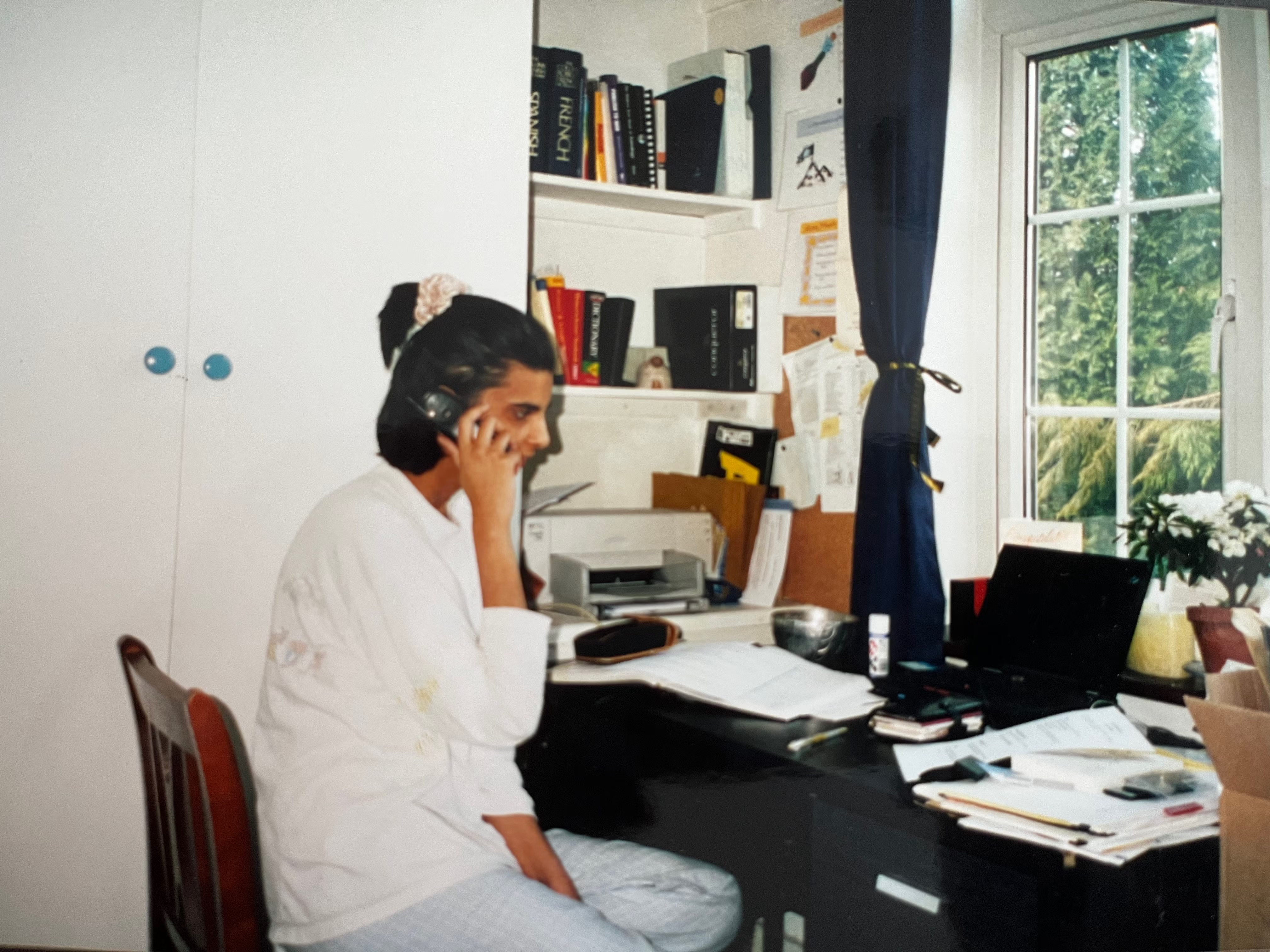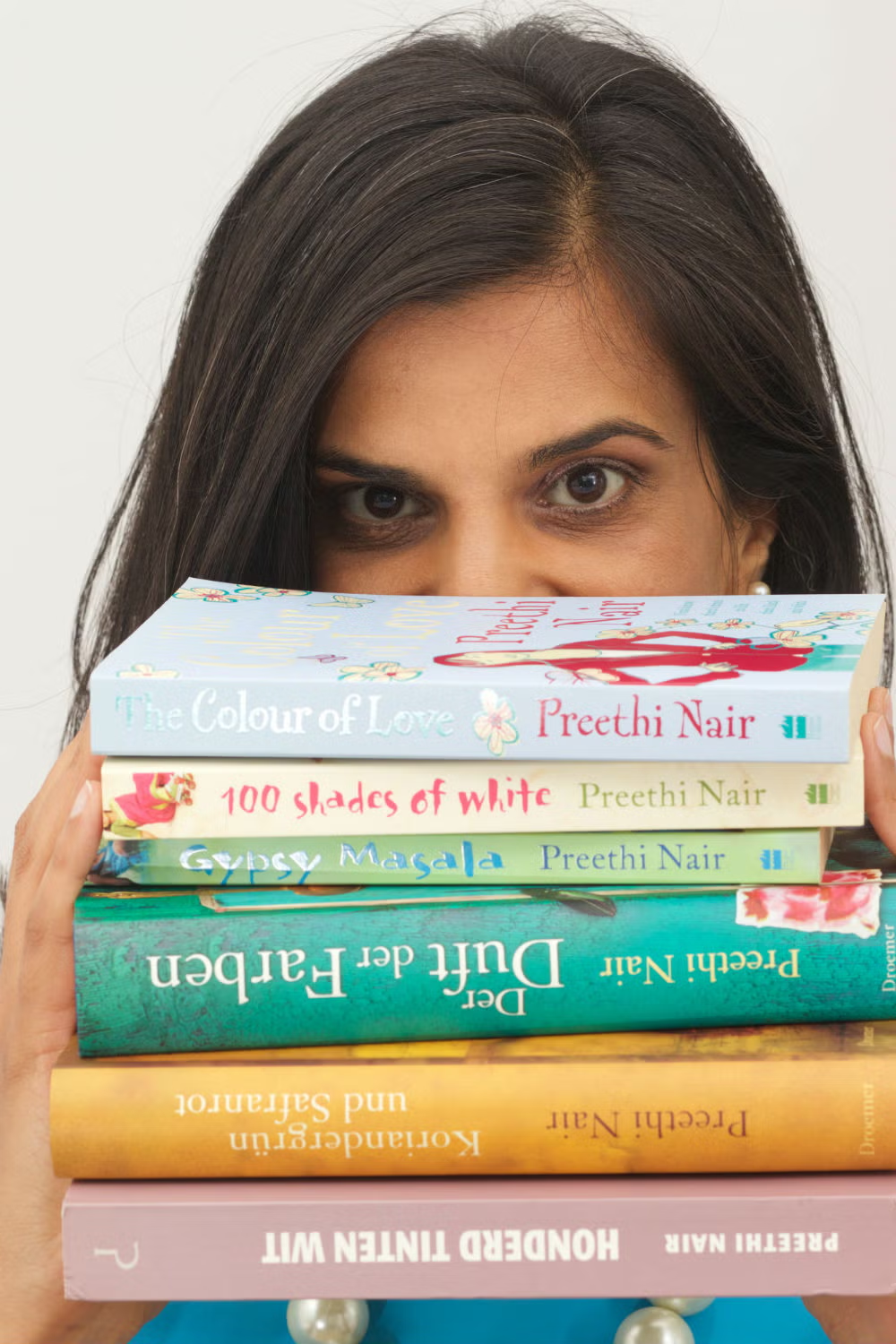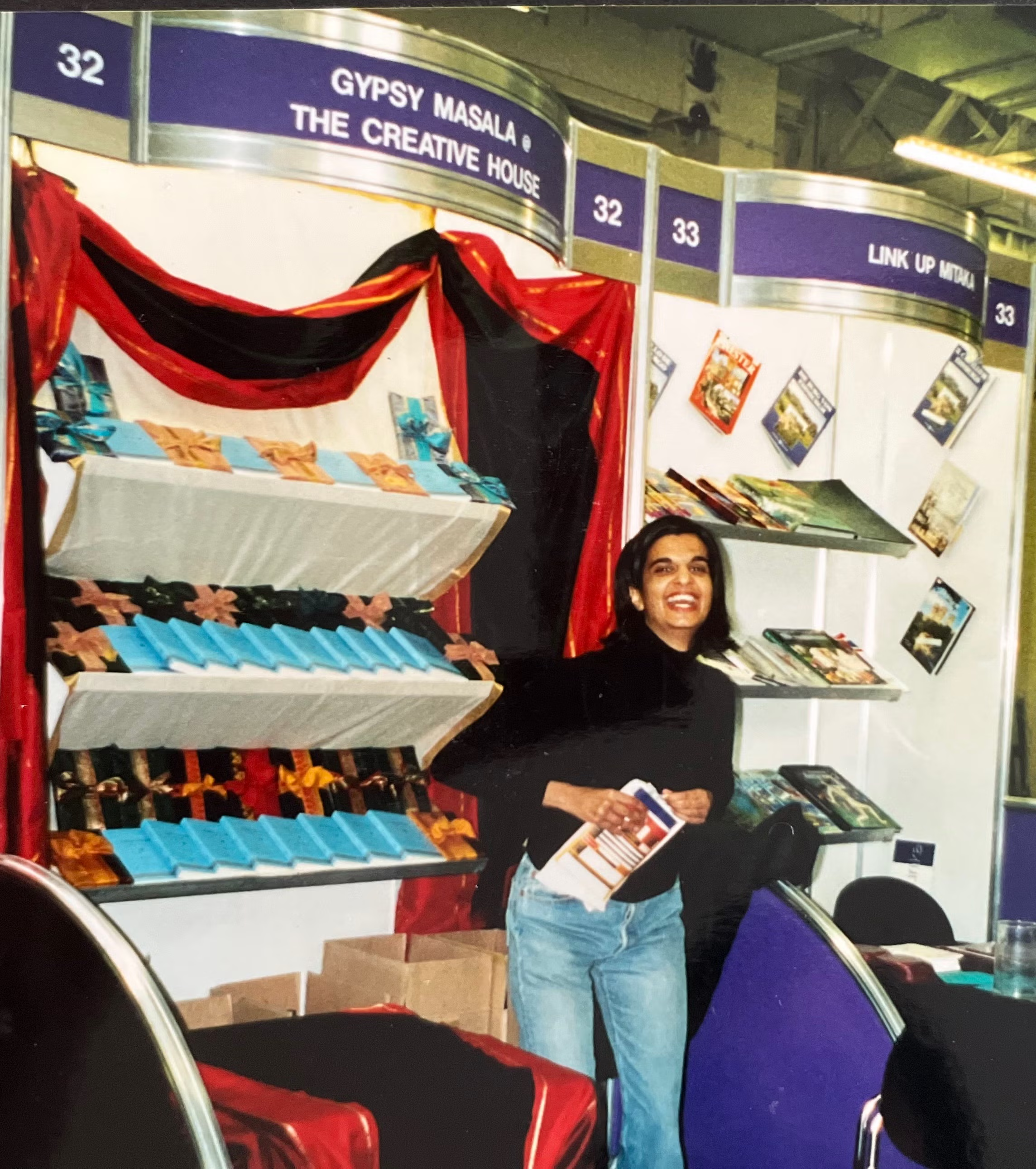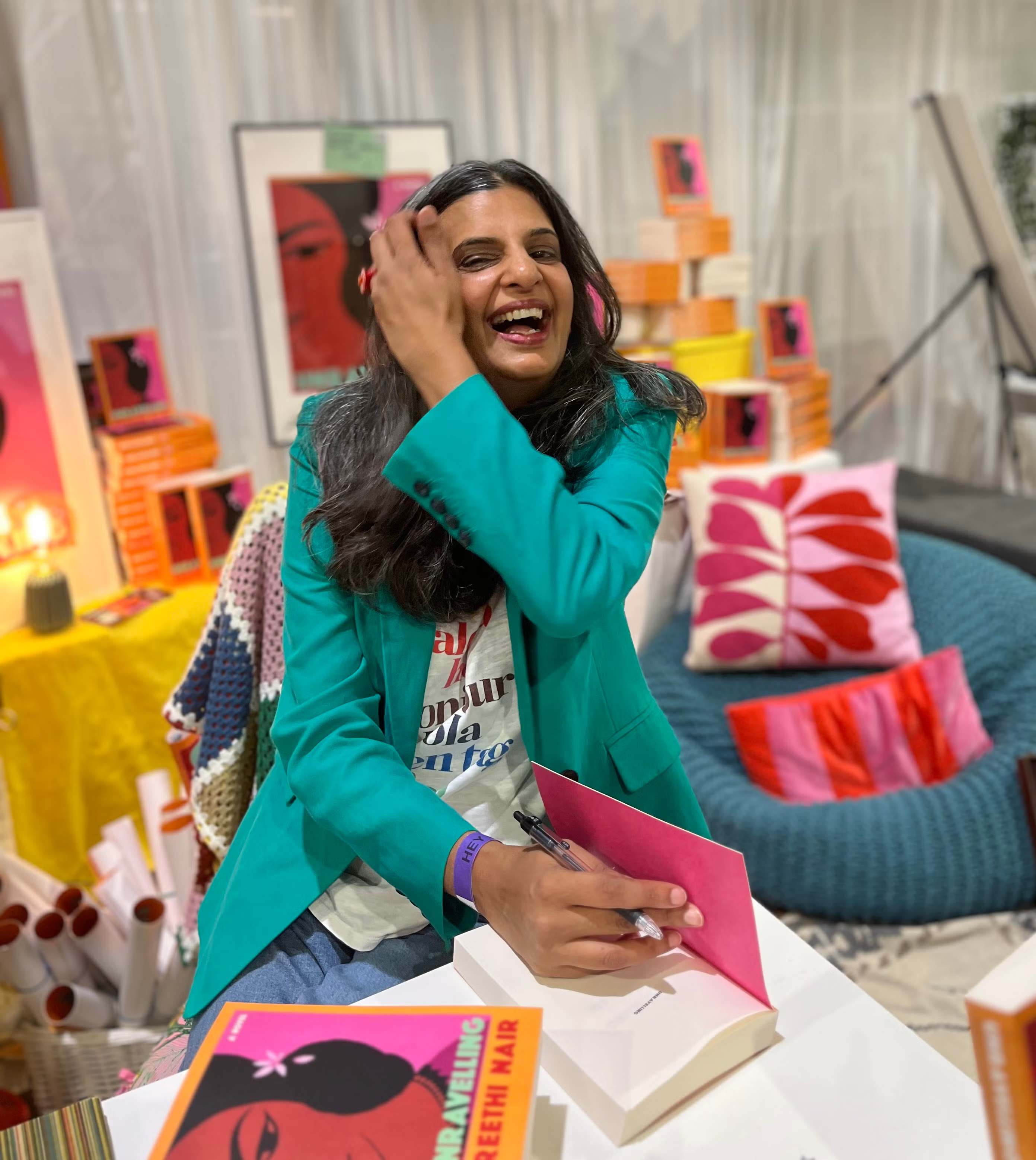In my twenties, bouncing back was never a question. The confidence that comes with youth made me feel I could handle any setback, find the lesson, and turn that straw into gold. As the decades have passed, (I’m now in my fifties) that straw has turned into a haystack and finding my way back through it all has been far more complex than I could have ever imagined.
At 28, I was made redundant from my job as a management consultant and was overcome by shock and shame in equal measure. I was still living with my parents at the time, and not wanting to worry them I decided to pretend to go to work every day until I came up with a plan.
So, every day, I’d put on a suit and wave goodbye to them only to walk past my office and turn left into the library. I did this for eight months – yes, you read that right, eight months. I felt remorse for my deception, but I told myself everything would work out.
Having time to really think about what I wanted to do next really helped me and I took the redundancy as a sign that I should follow my dream of becoming a writer.
While at my new office – “the library” – I started working on a book idea in earnest. I came up with an idea about a young Indian woman, raised to fulfil her parents’ dreams of respectability, but who sets off to make her own destiny and disrupts the whole family.
I sent off my manuscript, but it was rejected by every single publisher. Undeterred and driven by a belief that there was an audience for my novel, I decided to self-publish it, telling myself once it became a success, I’d then sell it to a big publisher. I was so confident, that I wrote a list of the future me (now referred to as “manifesting”), and it went something like this: “I’m a bestselling novelist; my books are translated internationally; film rights have been bought…”
Ignoring the unemployed me, I created a fictitious blonde alter-ego named Pru to help promote my book. I won’t go into the rollercoaster ride of what happened next, but basically, I ended up running two companies, one called The Creative House (because believe me, it was creative) and the other called NineFish. My alter-ego was the complete opposite of me and her sole job was to promote the real me. After two years, amazingly, it paid off, and I signed a three-book deal with HarperCollins, published my best seller Gypsy Masala, won Asian Woman of the Year and my alter-ego, Pru, was even shortlisted as publicist of the year!

It was everything I had dreamed of and I glided into my thirties, bought a flat, worked as a professional writer, and got married. Then my mum got ill, and everything changed again. I watched the strong, feisty woman deteriorate rapidly and lose control over her life. Mum died at 59 and the grief that came next was brutal.
A year after her death, I had my daughter, Anjali. But something wasn’t right. I had so much to be grateful for, but I felt numb; I couldn’t get past the loss of Mum and the fragility of life. No matter how hard I tried to be happy, I couldn’t really feel it so I had to pretend. The self-assured go-for-it personality that had always seen me through eluded me. I felt lost and diminished. Instead of turning straw into gold, this time I crawled into a haystack. I felt safe, but it was no place for dreaming.

I stayed like that for far too long, nearly a decade. Disillusioned with the publishing business, I stopped writing and set up my own company teaching leaders how to tell their stories instead. I curated a life that I could present to the world as happy while I felt a deep and desperate sadness inside.
It was a chance encounter with a 59-year-old woman who gave me the keys to free myself. We met briefly at a party, and got on so well that we went for a coffee a few days later. That coffee turned into a five-hour conversation. To the outside world, she also had a great life: a loving family, friends, and a beautiful home, but for some reason, she showed me the mess below the surface. Her marriage was dysfunctional, her grown-up children remote and elderly parents demanding.
She had hidden how she really felt about her life from others for a long time, but being honest about it all for the very first time, she started to put herself first. Looking around, I saw so many people in the same position, all in their fifties and sixties with different versions of the same story. Outwardly they were successful, but inwardly they were people consumed by fear and disappointment, with a silent longing for things to be different.
At this age, so many assumed that it was too late, too difficult to change things. But recognising myself in what I was seeing around me, I began to slowly rescue myself.

I was 47 and had wasted too much time feeling stuck; I remembered the 28-year-old me who wasn’t afraid to make things happen. Tentatively, I began writing again in my spare time between consulting jobs. The words tumbled out and I turned them into a one-woman show about someone who thinks she has the most perfect life, and then, on the eve of her fortieth wedding anniversary, everything begins to unravel after her first love appears.
I called the show Sari, the whole five yards and tried to get it out there, only to be told there wasn’t a market for a 50-something woman show. Being told "no" gave me the push I needed to turn my crawl out of the haystack and turn it into a run. On a whim, I decided to book a theatre in the West End, to perform and produce the show myself using the money I made from my consulting jobs. My husband was incredibly supportive and didn’t for one moment tell me to stick to my “proper job”.
There was a slight problem in that I had never acted before, but I hired a director, rehearsed for over a year with a group of 18-year-olds – don’t ask – and ended up playing all 20 parts. It was the most terrifying and exhilarating thing I have ever done. The show sold out over eight days, we were offered a bigger theatre, and the producer of The Crown came to see it and Sari was optioned for television. I felt alive.

But what Sari really wanted to be was a novel, so I began my book Unravelling. Little did I know how much I would unravel in the process, and many times I just wanted to give up. Unravelling took me five years to write and well into my fifties.
During this time, I had two operations in quick succession, and caught Covid badly. Feeling the fragility of life again, I made a huge effort to keep on track, focusing instead on tiny victories and a purpose bigger than myself: to tell a story that would make invisible women visible.
I was offered a fourth book deal with HarperCollins, but didn’t want to accept it, worrying the tone of my main character’s voice would be watered down. Fear faithfully whispered that Unravelling would never see the light of day if I turned down the deal. But, I was led by my gut and an urgent need to truly express myself. I wasn’t too old to go on a new adventure.
So, I turned down that book deal to go solo again and self-publish Unravelling, which came out last week. There is no alter-ego this time, no reckless confidence. There’s just me, unravelled, putting one foot in front of the other, knowing that new chapters are always there for the taking. There is still everything to play for and hopefully, I can lead by example.
Preethi Nair is the author of four books, including ‘Unravelling’, and is visiting professor at FT/IE Business School and Cranfield School of Management
Disclaimer: The copyright of this article belongs to the original author. Reposting this article is solely for the purpose of information dissemination and does not constitute any investment advice. If there is any infringement, please contact us immediately. We will make corrections or deletions as necessary. Thank you.



